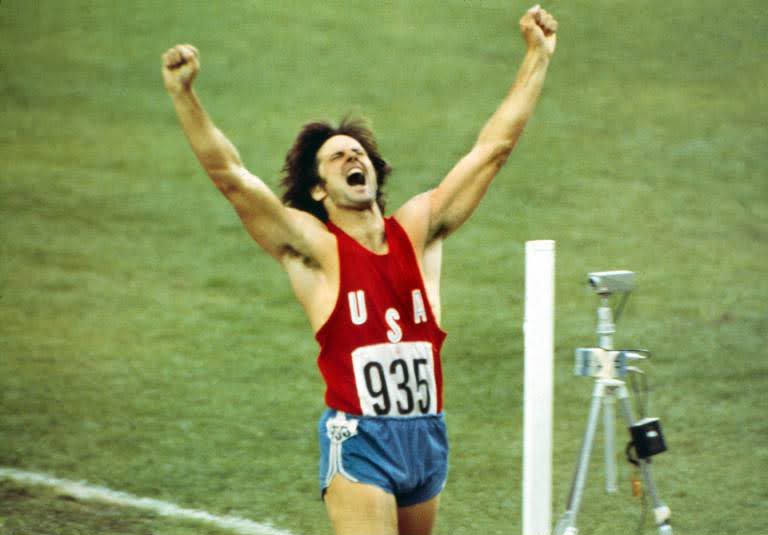 London Spy
London SpyOlympic history: Montreal 1976
If one of the reasons for taking the 1976 Games to Montreal rather than to Moscow or Los Angeles was to avoid possible boycotts it didn't quite work.
A number of African nations stayed away, and a few more pulled out during the proceedings, in protest at the presence of New Zealand, whose rugby union team had undertaken a tour of South African earlier in the year.
But while numbers of nations and competitors were down on Munich, costs were up, partly because of the need for increased security but also because the Canadians were considered, not least by their own taxpayers, to have spent rather extravagantly.
Some estimated the final bill at $1,400-million but Canada didn't take so much as a gold medal in return, becoming the only hosts to fail to win an event at their own Summer Olympics.
The Soviets finished top of the medals table and much of their success came in gymnastics. Nikolai Andrianov won seven medals, including four golds from the seven individual events.
With the stars of previous Games, Ludmila Tourischeva and Olga Korbut, joined by the newcomer Nellie Kim the Soviets had a formidable women's team and took eight of the 18 medals on offer. But they were upstaged by Nadia Comăneci. Aged just 14, the Romanian won a medal in five of her six events, finishing with three golds, a silver and a bronze and only narrowly missing out on third place in the horse vault competition.
In the uneven bars event Comăneci became the first gymnast in Olympic history to be awarded a perfect 10, and she repeated the feat six times. The scoreboard couldn't cope; it could only display three digits and her score was displayed as 1.00.
Swimming was dominated by the United States and East Germany. Only David Wilkie of Great Britain stood between the Americans and a clean sweep of the men's medals as he took gold in the 200m breaststroke. Kornelia Ender won four golds in the women's events as East Germany took 11 out of 13. In diving, Klaus Dibiasi of Italy won a third successive gold in the men's platform and, added to his silver from Tokyo in 1964, became the first diver to win medals at four editions of the Games.
East Germany won nine out of 14 women's gold medals in track and field but there were notable successes for the Soviet Union's Tatyana Kazankina in the 800m and 1,500m double and for Poland's Irena Szewińska, whose 400m victory, complete with world record, was her third and final gold in a total of seven meals dating back to 1964.
Caribbean nations cleaned up in the men's sprints, with Hasely Crawford of Trinidad and Tobago winning the 100m ahead of Don Quarrie of Jamaica, who then won at 200m. Finland's Lasse Virén won again at 5,000m and 10,000m but could only finish fifth in the marathon as he tried to emulate Emil Zátopek's triple success of 1952. Alberto Juantorena of Cuba was among the favourites for the 400m and also powered home to win at 800m, a feat only achieved previously by Paul Pilgrim of the United States at the unofficial Games in 1906.
Italian brothers Raimondo and Piero D'Inzeo didn't win a medal in Montreal but they did become the first Olympians to compete in eight Games, having collected 12 show jumping medals between them since making their debut in 1948.
As well as success, these Games brought shame for the Soviets. Boris Onishchenko managed to get their entire modern pentathlon team disqualified for cheating when, during a fencing bout, it was discovered he had rigged his weapon to register a hit when one had not been made.
Top three performances
1-Nadia Comaneci (ROM) - Fourteen-year-old Comaneci scored seven perfect 10s en route to three gold medals. The scoreboard was not able to display the total, and instead showed 1.00.
2-Alberto Juantorena (CUB) - Became the first man to win a 400m-800m double at the same Olympics.
3-Bruce Jenner (USA) - Scored a world record 8,634 points en route to decathlon gold.
Did you know?
Canada were the only host nation to date to win no gold medals, claiming five silver and six bronze.
Soviet modern pentathlon competitor Sergio Onishchenko was disqualified during the fencing competition when his epee was found to have been electronically rigged to register a 'hit' at the touch of a button.
28 African countries boycotted the Games in protest against the IOC's refusal to exclude New Zealand, whose rugby team had toured apartheid South Africa earlier in 1976.

 Yahoo Sport
Yahoo Sport 












































